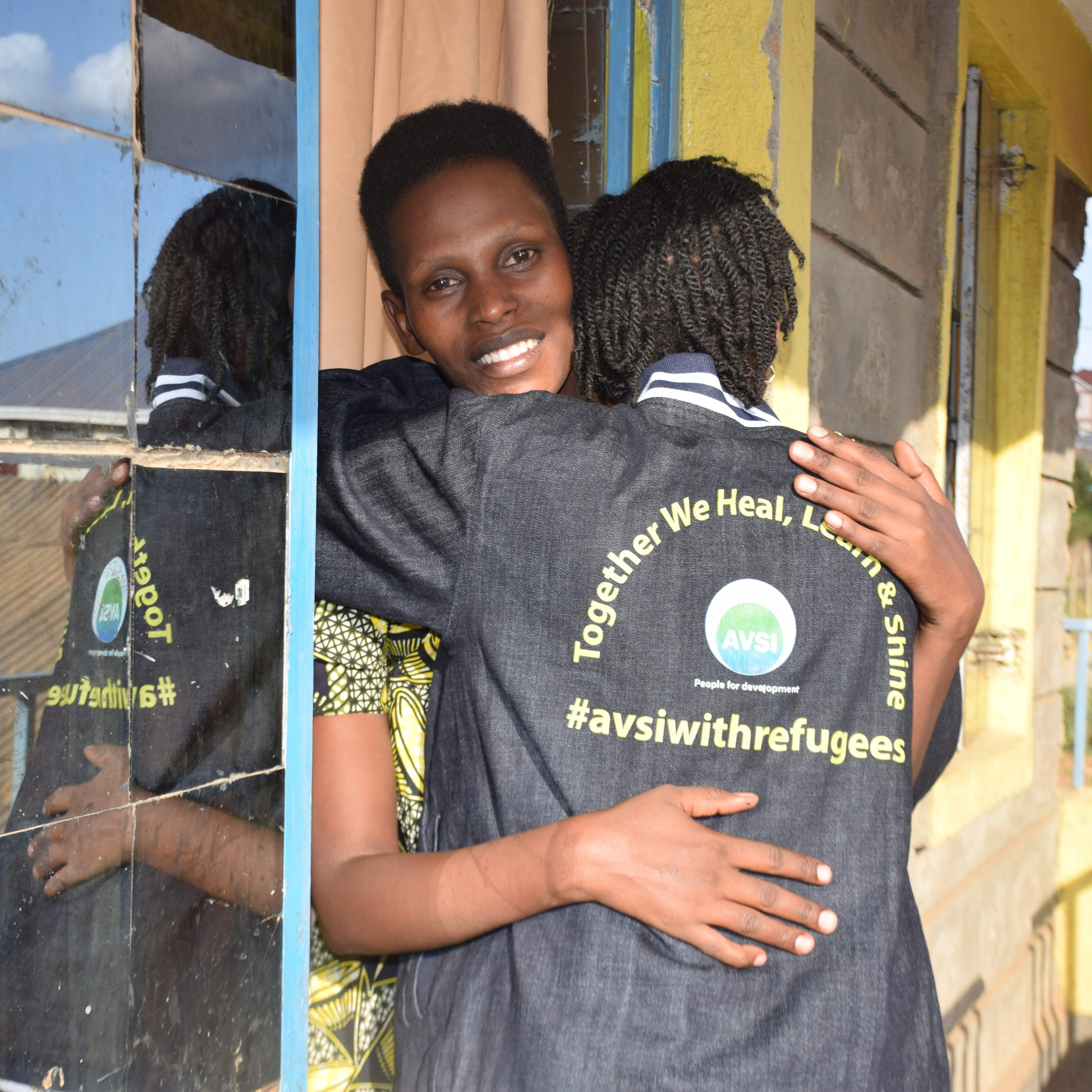In recent years, the number of refugees and internally displaced persons (IDPs) in urban areas has increased significantly, with many fleeing conflict, persecution, and poverty in their home countries. Currently, the total number of registered refugees and asylum seekers in Nairobi is 92,778 according to UNHCR Kenya statistics.
On a day-to-day basis, refugees are faced with immense challenges including limited access to basic services such as healthcare and education, discrimination, and lack of livelihood opportunities. In Nairobi, the Imarisha Jamii project funded by RASKOB Foundation, and implemented by AVSI, is helping to empower urban refugees and their host communities in the Kayole, Mathare, and Komarock areas through financial literacy and income-generating activities training.
The Imarisha Jamii project aims at improving the socio-economic well-being of urban refugees and host communities by increasing their access to livelihood opportunities and financial services. Through a combination of financial literacy training, business development support, and access to credit and savings products, the project has helped refugees to start and grow their own businesses, and ultimately become financially self-reliant.
Today, for instance, Chantal, a congolese refugee, who had been struggling to make ends meet since arriving in Kenya is now able to support herself and her family. Chantal, on her arrival to Kenya, had to live in a small, one-roomed apartment with her husband and five children and was finding it difficult to provide for her family.

In 2021, she was enrolled in the Imarisha Jamii project, which aimed to enhance meaningful livelihoods together with 200 other young women and improve the psychosocial resilience of 200 adolescent girls. Through this initiative, Chantal was able to attend training on market-oriented skills, business skills, entrepreneurship skills, and financial literacy training; she learned how to manage her finances more effectively in order to start her own business.
With the help of the dedicated educators within the Imarisha Jamii project and her husband, Chantal refused to be held back by her circumstances and decided to start her own business. Soap-making business, being one of the immediate market needs, was an appealing opportunity for Chantal. Today, she is a successful entrepreneur who owns a soap-selling business in the Nairobi areas of Kasarani, Mwiki. Chantal makes detergents from raw materials and produces up to 20 liters of soap daily which she sells within her community and uses the proceeds to provide for her family.

Chantal is also a member of a Community Savings and Loaning Association (CSLA) where she is able to save and borrow money at an affordable interest. This community-based microfinance model empowers Chantal and her friends by providing them with access to informal financial services through the collective pulling of resources and provision of loans to group members.
“Imarisha Jamii Project has transformed my life, and given me the skills and confidence I needed to succeed” Chantal says. She thrives in her business and is now able to send her children to school. Chantal hopes to open a shop that sells soap-making ingredients in her locality as a way of ensuring easy access to these products to the business people in the same industry.
The project also promotes greater integration and social cohesion between refugees and host communities. The training and support offered to both groups helped to level the field and ensure proper integration. The training platform allowed for the exchange of ideas and hence contributed to building stronger relationships and reducing tension between refugees and Kenyans.
Skilling the refugees and their host communities has helped to build more resilient and self-reliant individuals who can be ambassadors of change and can promote mindset change within their localities.
Imarisha project
The Imarisha Jamii project was a 2-year project from July 2021 to June 2023 aimed to empower urban refugees in Nairobi, including the Kayole, Mathare, and Komarock areas. It aimed at reducing cases of extreme poverty and vulnerability of women through a graduation model towards resilience in the informal urban refugee settlements of Nairobi. The project addressed these issues by providing financial literacy and income-generating activities training to both refugees and host communities. The Imarisha Jamii project has been implemented by AVSI with funds from The RASKOB Foundation for Catholic Activities.
